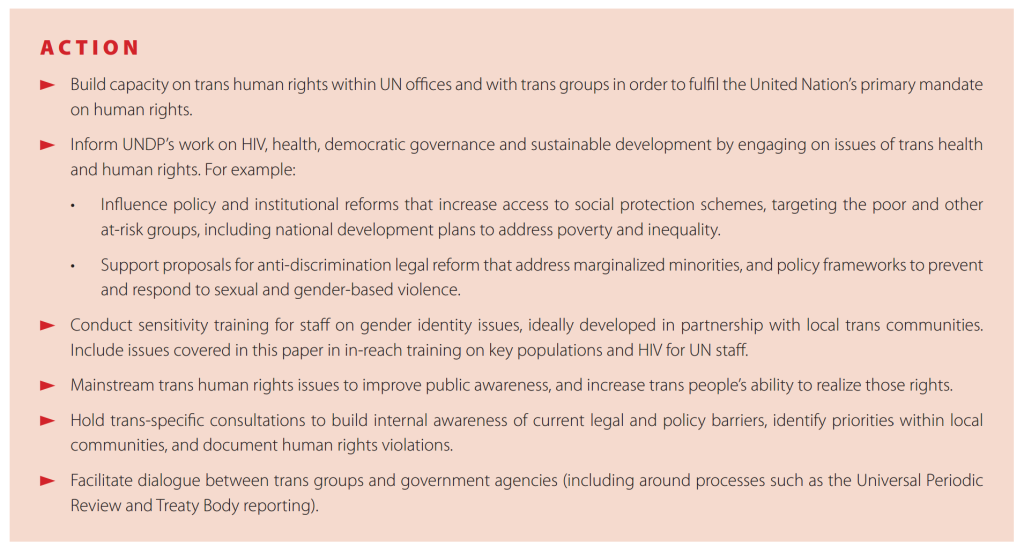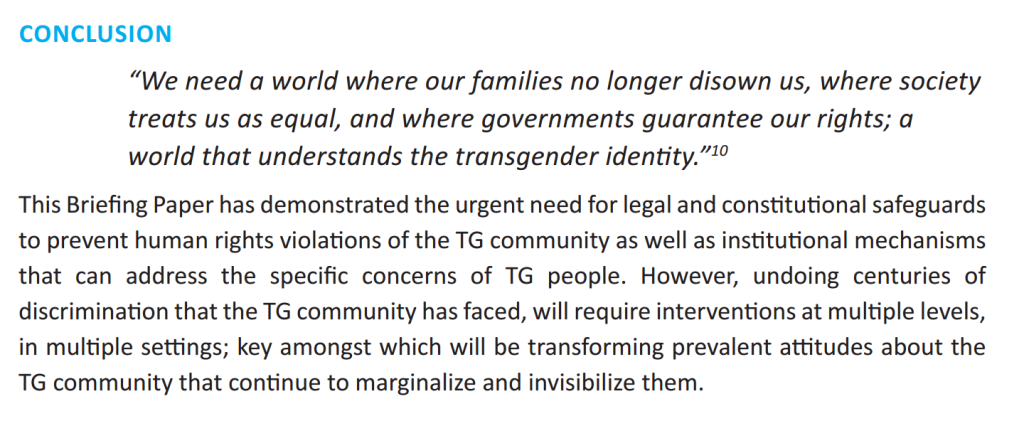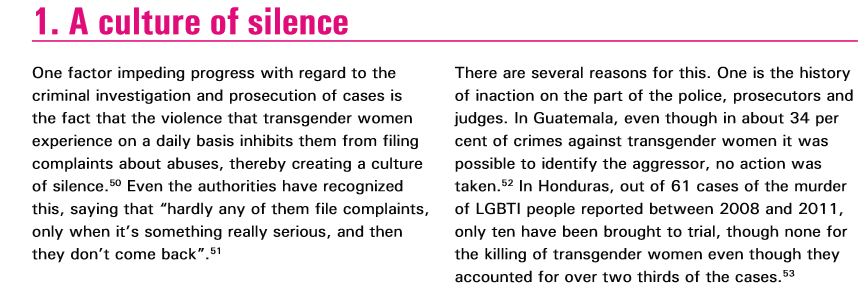I’m delighted to host this guest post from Fran Luke, full-time parent, un- and underemployed musician and teacher.
“Ignorance is the parent of fear.” Moby Dick, Herman Melville
I am not a subject matter expert. I do not pretend to be, nor have I ever had any intention of becoming one. I would much prefer to be playing with my children, writing music, improving and performing on my instruments, or even working at a job that allows me to adequately care for my family. That said, I have located and read as much reporting as I can find regarding Transgender Human Rights issues, globally.
After being advised by a member of an NGO advocating, I guess, for people ‘like me’ that the ‘time was not yet right’ to pursue Trans* rights at the UN level, I felt the need to learn more.
When our leadership spends more time speaking about the tie or dress they wore to a White House function, or how great it is our Trans* children can now die in endless war, it’s time to look elsewhere.
The argument for which group is the most marginalized should never be entered into. It is pointless. It’s always an issue of class and perceived degrees of humanity.
Transgender reporting
With regard to documentation, who is included or not, and policy, I’ll start with the UN. It’s my understanding population data is provided at the national level. This from a brief discussion with Anne-B Albrectsen at UNFPA, “We work to make sure that all countries disaggregate data as much as possible. Nationally owned data is best”.
Can data collected at the national level, perhaps the easiest way to get data into the system, accurately reflect conditions of marginalized sectors? Would it not often be the policies of those in power that keep marginalized communities where they are? The issues of the Rohingya and question of citizenship come first to mind.
There is not a great deal of reporting on the issues of Transgender human rights, but there is some. Rather than begin by referencing reports from LGBTI advocacy organizations, I thought it more appropriate to start with recommendations and reports from agencies within the UN.
UN-counted?
After being treated at times like an uncomfortable joke at some UN initiatives that invited civil society discourse, I thought I’d start with their own recommendations. These recommendations never seem to make it to the mainstream discussions of Human Rights, or the General Assembly for that matter.
Here is a list of recommendations from the 2013 UNDP Discussion Paper, ‘Transgender Health and Human Rights’:
Some of the recommendations from the 2012 UNDP report ‘Transgender Persons, Human Rights and HIV vulnerability in Asia and the Pacific’ include; having Trans* people as research partners, documenting and understanding Trans* vulnerability, promoting transgender rights and culture, making equality legislation work better.
The first of eleven recommendations relates directly to counting:
UNDP’s 2010 Issues Brief, ‘Hijras/Transgender Women in India: HIV, Human Rights and Social Exclusion’, includes the following recommendations:
Finally, these are the concluding thoughts from the UN-Women briefing paper, ‘The Transgender Question in India; Policy and Budgetary Priorities’:
Where next?
One question to consider is why this type of analysis has failed to penetrate more deeply into UN and national-level policy discussions.
Another is whether there are risks from being counted – whether invisibility does not sometimes provide a type of protection. The discussion, and struggle for the realization of Universal Human Rights for any segment of society can never be put off for political expedience. If the goal is truly a crosscutting, transformative human rights agenda, then we must start by recognizing our shared humanity. The cost of silence is, and has been far too great.
[From The Night is Another Country, RedLac Trans and the International HIV/AIDS Alliance.]
We know some information at least is there, provided as shown in these instances by the agencies or organizations that do not appear to bring it into the mainstream. So, who does the counting and decides what to count? I’ll end here with a quote from Dr. Martin Luther King:
Cowardice asks the question – is it safe?
Expediency asks the question – is it politic?
Vanity asks the question – is it popular?
But conscience asks the question – is it right?
And there comes a time when one must take a position
that is neither safe, nor politic, nor popular;
but one must take it because it is right.
Selected Resources
- Discussion Paper on Transgender Health and Human Rights
- Lost in Transition: Transgender People, Rights and HIV Vulnerability in the Asia-Pacific Region
- Hijras/Transgender Women in India: HIV, Human Rights and Social Exclusion
- The Transgender Question in India; Policy and Budgetary Priorities
- The Night is Another Country
- Injustice at Every Turn, A Report of the National Transgender Discrimination Survey
- Paying an Unfair Price, The Financial Penalty for Being Transgender in America





